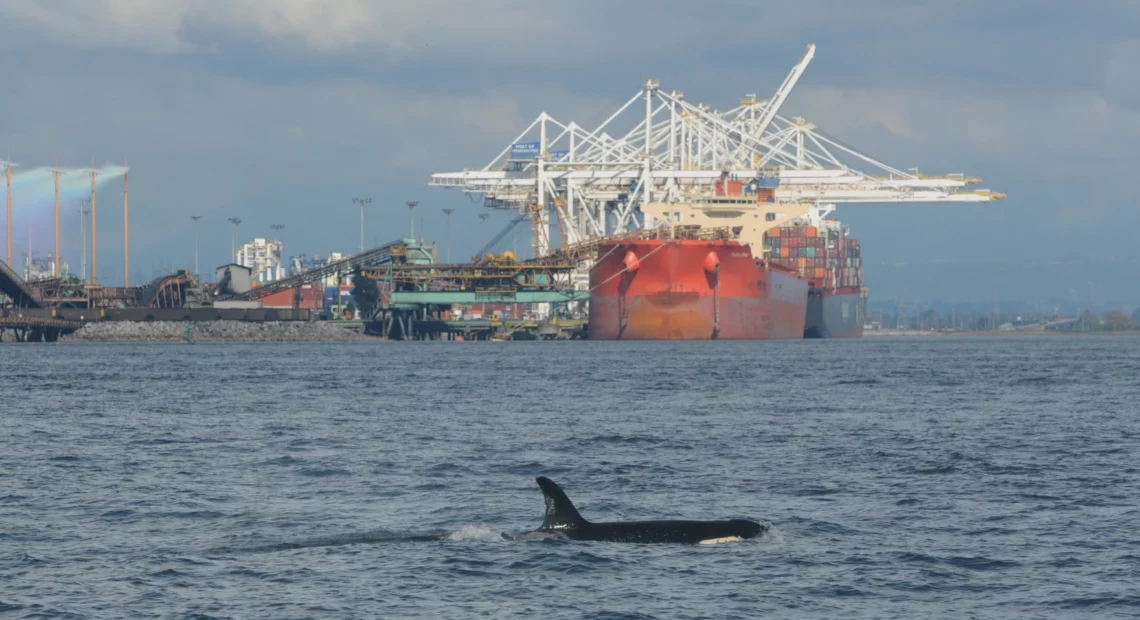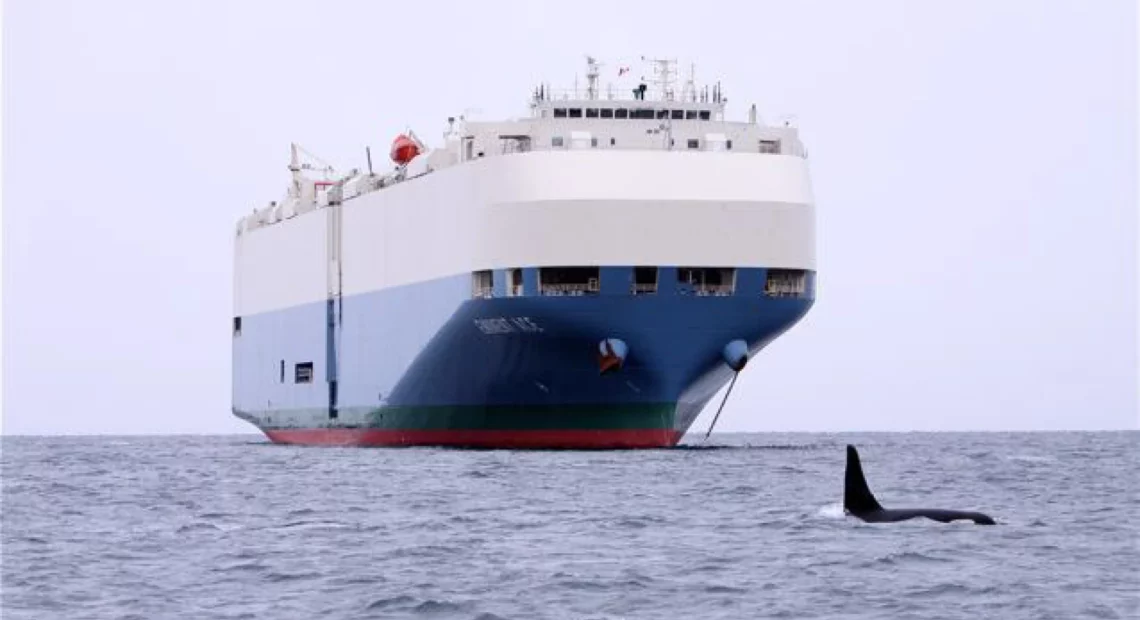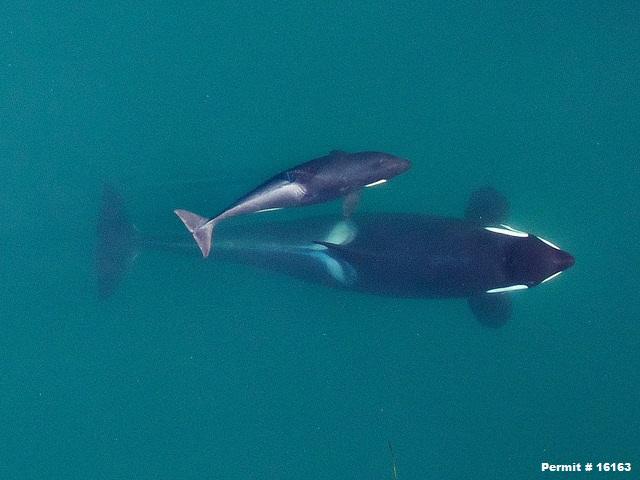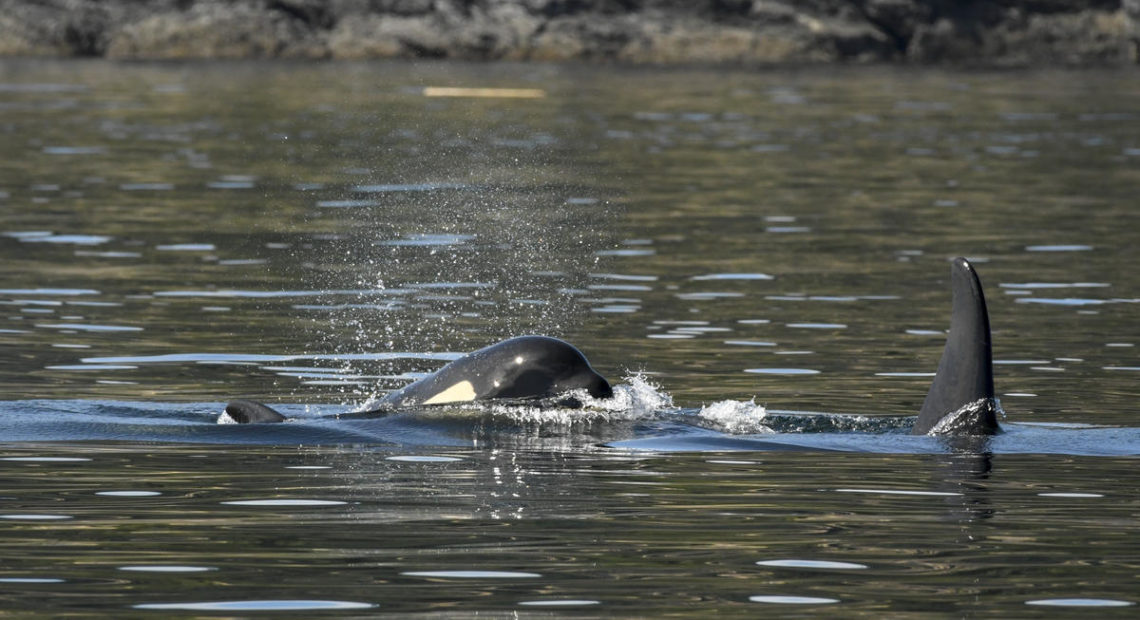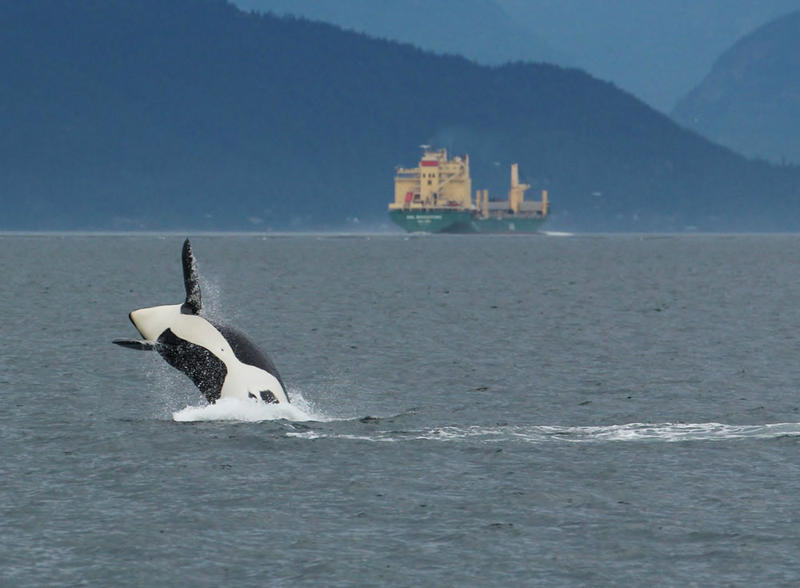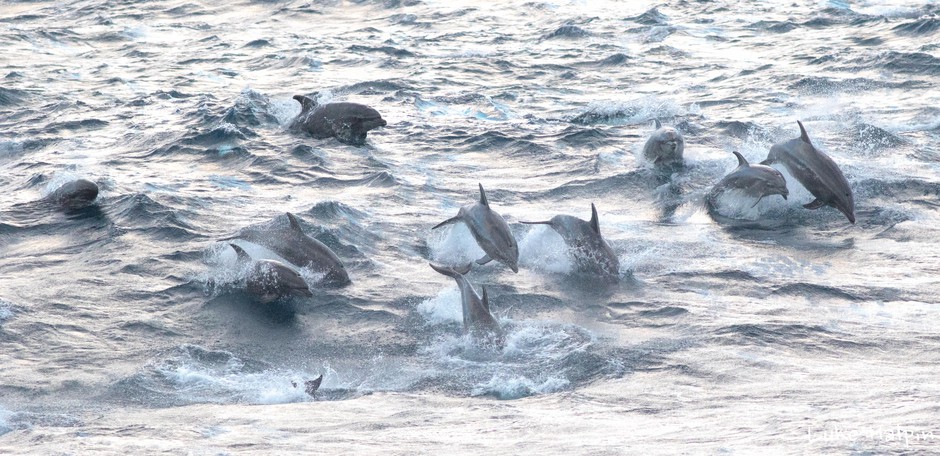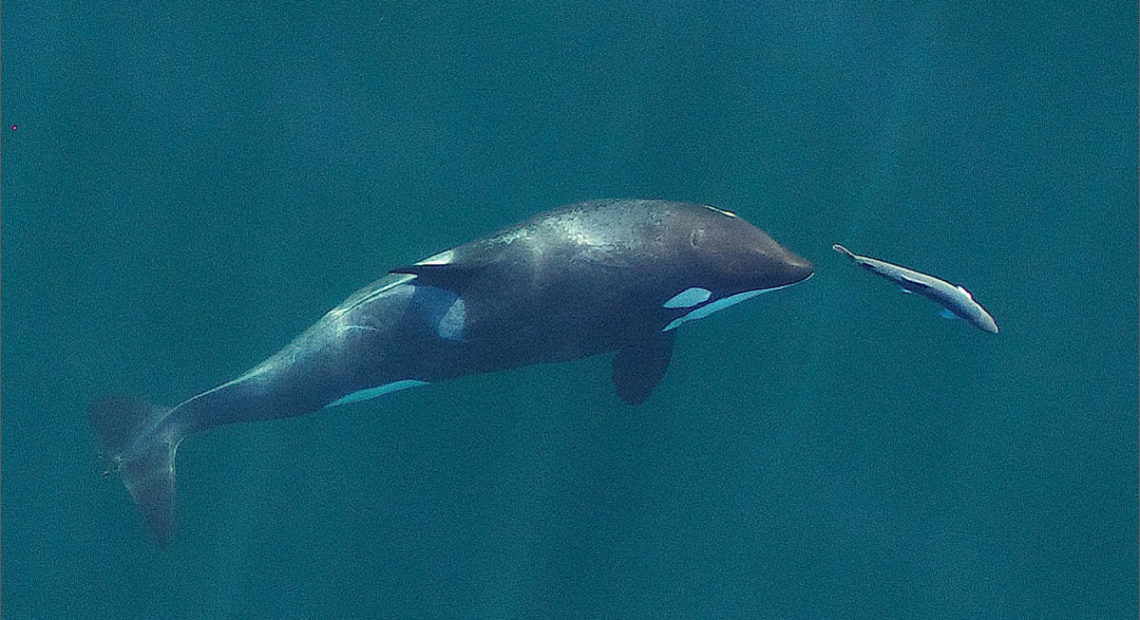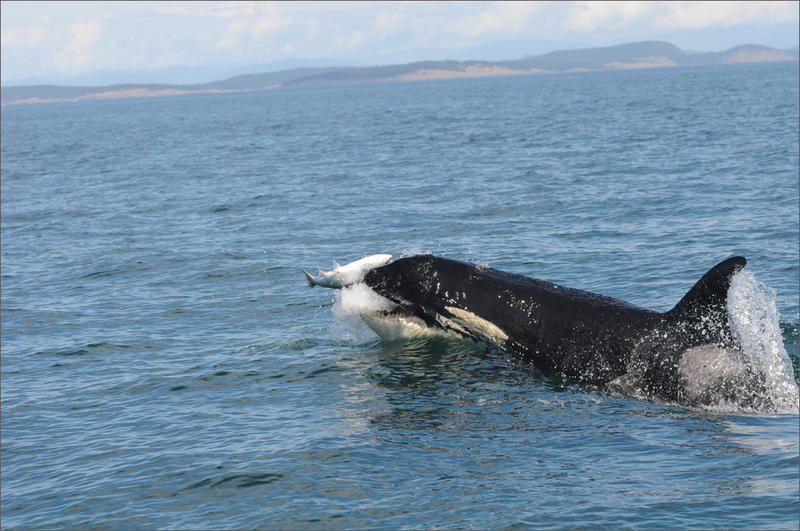The majority of captains of big commercial ships entering and leaving Puget Sound are cooperating with a request to slow down temporarily to reduce underwater noise impacts to the Pacific Northwest's critically endangered killer whales. The duration of the experimental slowdown – modeled on a similar project in British Columbia – will be extended into the new year, Read More
Fortunately, it doesn't happen very often in the Pacific Northwest that ships collide with whales. But when it does, it's upsetting, tragic and the whale probably dies. Three separate teams have developed smartphone-based systems that can alert commercial mariners to watch out, slow down or change course when whales have been sighted nearby. A recent ride-along on a big Read More
An emaciated orca from the Pacific Northwest’s critically-endangered resident killer whale population could get a pole injection of medicine under the latest preferred option of an emergency response team. Officials with the lead federal agency, the National Oceanic and Atmospheric Administration, described the changing situation Monday morning.Read More
An emaciated, four-year-old Puget Sound orca is drawing alarm. Whale scientists and the federal agency NOAA are weighing what it means to provide food and medicine to this endangered orca. The declining health of the orca has become apparent as it swims and feeds in the border waters between Washington and British Columbia.Read More
The call is going out again to the operators and pilots of big ships to slow down in the shared border waters between Washington and British Columbia. The idea is to reduce underwater noise that could bother endangered killer whales.Read More
While searching for seabirds in July of 2017, biologist Luke Halpin instead saw a sea bubbling with about 200 bottlenose dolphins and 70 false killer whales. It would be an unusual sight anywhere — bottlenose generally travel in much smaller groups — but Halpin’s sighting was made more remarkable by where it happened. These usually tropical animals were off the west coast Read More
Orcas survive largely on a single food source: Chinook salmon migrating from Northwest rivers. As Chinook populations have declined, orcas have struggled to find enough to eat.Read More
The Northwest’s beloved orcas will not survive unless humans do more to ensure adequate food and cleaner, quieter waters. That was one of the messages at a crowded signing ceremony in Seattle convened by Washington Gov. Jay Inslee. The population of genetically-distinct resident orcas has dwindled to a critically low level. Only 76 remain as of the last count.Read More

